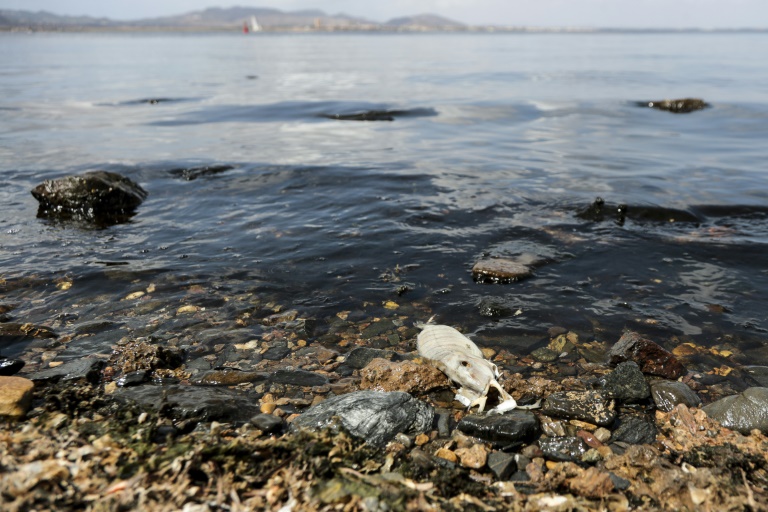Spain’s environment ministry on Thursday unveiled a roadmap for regenerating the stricken Mar Menor, one of Europe’s largest saltwater lagoons that is slowly dying from agricultural pollution.
The plan would curb some harmful agricultural practices blamed for pushing the lagoon in southeastern Spain to what ecologists have described as “the brink of ecological collapse”.
“The environmental crisis of the Mar Menor is unsustainable, the damage must be stopped immediately,” Environment Minister Teresa Ribera said as she unveiled the 382-million-euro ($440-million) investment plan on a visit to the area.
In August, millions of dead fish and crustaceans began washing up on the lagoon’s shores, scenes that experts have repeatedly blamed on agricultural pollution.
They say the sea creatures died due to a lack of oxygen caused by hundreds of tonnes of fertiliser nitrates leaking into the water, triggering a phenomenon called eutrophication which collapses aquatic ecosystems.
The ministry’s plan for 2022-26 includes short- and medium-term steps to slash the contaminants entering the lagoon, ending illegal irrigation practices and revitalising the Mar Menor’s shoreline.
It outlines several environmental regeneration projects to support biodiversity in and around the lagoon, including the creation of a 1.5-kilometre (one mile) buffer zone along the Mar Menor’s shores.
Earlier this year, Ribera accused regional authorities of turning a blind eye to farming irregularities in the Campo de Cartagena, an intensively farmed area surrounding the lagoon.
The plan involves cracking down on illegal irrigation and cutting off supplies to farms without irrigation rights, reviewing permits for wastewater disposal and monitoring livestock farms.
Earlier this month, ecologists submitted a formal complaint to the EU over Spain’s “continued failure” to protect the Mar Menor, urging the European Commission to take “immediate action”.
Although the lagoon is protected under various EU directives and the UN environment programme, they said Spain has failed to comply with its legal obligations, taking “only superficial steps” to safeguard the Mar Menor from damaging agricultural practices.











